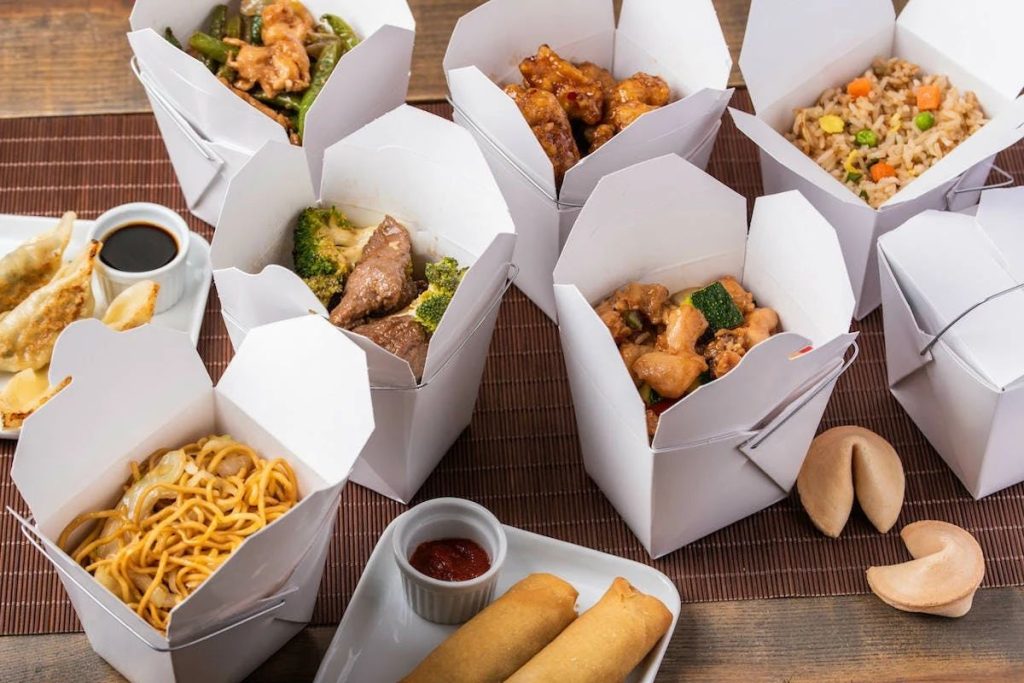Introduction
In today’s fast-paced world, maintaining a healthy diet can often seem like a daunting task. Between work, family, social commitments, and personal responsibilities, finding the time and energy to prepare nutritious meals can feel impossible. As a result, many people turn to convenient options like takeout, fast food, or pre-packaged meals, which are often high in unhealthy fats, sodium, and added sugars.
But how can you maintain a healthy eating routine when you’re constantly on the go? The good news is that with a little planning and some mindful habits, it’s entirely possible to eat healthily, even on your busiest days. In this article, we’ll share practical tips and strategies to help you avoid the temptation of takeout and stay on track with a nutritious diet, no matter how hectic life gets.
1. Plan and Prep Your Meals Ahead of Time
One of the biggest barriers to healthy eating when you’re busy is not having time to cook or plan meals. The solution? Meal prepping.
a. Plan Your Week’s Meals
Set aside time each week to plan your meals. Take a few minutes to think about what you want to eat for breakfast, lunch, dinner, and snacks throughout the week. Create a shopping list with all the ingredients you’ll need, and aim to stick to it.
- Benefits: Meal planning helps you avoid impulse decisions, ensures you have healthy options available, and saves time during the week.
- Tip: Look for recipes that are easy to prepare in bulk and store well in the fridge or freezer. Dishes like salads, stir-fries, grain bowls, soups, and casseroles are great options.
b. Batch Cooking and Prep
Spend a few hours on the weekend or a less busy day prepping ingredients or even cooking full meals. For example, cook large batches of grains (like quinoa or rice), roast vegetables, grill chicken or fish, or make salads in jars that are easy to grab during the week.
- Benefits: Having meals and snacks ready to go reduces the temptation to grab unhealthy takeout or snacks.
- Tip: Use reusable containers to store prepped meals and make sure they’re portioned for each day.
c. Invest in Meal Prep Tools
A slow cooker, pressure cooker (like an Instant Pot), or air fryer can make cooking much faster and more convenient. These tools allow you to throw in ingredients and let the machine do the work while you take care of other tasks.
2. Keep Healthy Snacks on Hand
When you’re busy, it’s easy to snack on unhealthy foods, especially when hunger strikes between meals. However, having healthy snacks readily available can help you avoid reaching for processed foods or ordering takeout.
a. Healthy Snack Options
Stock your kitchen with healthy, portable snacks like:
- Nuts and seeds: Rich in healthy fats and protein, they can keep you full for longer.
- Greek yogurt: A great source of protein and probiotics.
- Fresh fruit and vegetables: Pre-cut veggies or whole fruit are easy to grab and don’t require any prep.
- Hummus and whole grain crackers: Provides fiber and healthy fats.
- Hard-boiled eggs: A protein-packed snack that’s easy to make ahead of time.
b. Portion Control
Pre-portion your snacks into containers or bags so you’re less likely to overeat. This will help you avoid mindless snacking and ensure that you’re getting a balanced intake of nutrients.
3. Make Healthy Takeout Choices
Sometimes, it’s unavoidable — you’re too busy to cook, and takeout is the only option. However, you can still make healthier choices when ordering out.
a. Choose Grilled, Not Fried
Opt for grilled, baked, or steamed options instead of fried foods. Grilled chicken, fish, and vegetables are healthier alternatives to fried foods that are often loaded with unhealthy fats.
b. Control Your Portions
Restaurant portions tend to be large, so consider asking for smaller portions, sharing dishes with others, or saving half for later. This helps prevent overeating and minimizes calorie intake.
c. Substitute Sides
Instead of the usual fries or chips, ask for healthier sides like a side salad, steamed vegetables, or a baked potato. Many restaurants are happy to accommodate these types of substitutions.
d. Skip Sugary Drinks
Many takeout orders come with sugary sodas or drinks. Instead, opt for water, sparkling water, or unsweetened iced tea. These are healthier and will help you stay hydrated without the extra sugar and empty calories.
4. Keep It Simple with Quick and Healthy Meals
When time is tight, simple meals can be both healthy and satisfying. Here are some easy meal ideas that don’t require much time or effort to prepare:
a. Salad Bowls
Salads are an excellent way to pack in nutrients quickly. Start with a base of leafy greens like spinach or kale, add protein (grilled chicken, tofu, beans, or hard-boiled eggs), toss in some veggies, and top with healthy fats like avocado or olive oil.
- Tip: Make salads in advance by prepping the ingredients and storing them separately until you’re ready to eat. This keeps the greens fresh and prevents wilting.
b. Smoothie Bowls or Smoothies
Smoothies are a great way to get a quick, nutrient-dense meal. Blend fruits, vegetables, yogurt or plant-based milk, and protein powder or nut butter to create a delicious and filling meal. You can even make smoothie packs in advance by portioning out the ingredients and freezing them.
- Tip: Add a handful of spinach or kale to boost the nutritional value without compromising the taste.
c. Stir-Fries
Stir-fries are a quick and healthy option that’s highly customizable. Use lean proteins (chicken, shrimp, tofu) and plenty of vegetables, and stir-fry with a little olive oil and low-sodium soy sauce. Serve over brown rice or quinoa for added fiber.
- Tip: Pre-chop veggies and proteins in advance to make the cooking process faster during the week.
d. Grain Bowls
Grain bowls (also known as Buddha bowls) are easy to prepare and provide a balanced mix of carbs, protein, and healthy fats. Combine a whole grain (like quinoa, farro, or brown rice) with roasted vegetables, beans, and a protein source, and drizzle with a flavorful dressing.

5. Make Smart Substitutions to Simplify Meals
If cooking feels overwhelming, consider simplifying recipes by making smart substitutions that save time without sacrificing nutrition.
a. Use Frozen Vegetables and Fruits
Frozen fruits and vegetables are just as nutritious as fresh ones and often cost less. They are already pre-washed and chopped, which saves you time in the kitchen.
- Tip: Keep a stock of frozen vegetables like spinach, peas, and mixed vegetables, and frozen fruits like berries and mangoes to make smoothies or quick meals.
b. Buy Pre-Cooked Grains and Proteins
Many grocery stores offer pre-cooked grains (like quinoa, rice, or farro) and proteins (like rotisserie chicken or canned beans) that can be easily added to meals. These can save you hours in meal prep while still providing healthy and nutritious options.
c. Use Simple One-Pot Meals
One-pot meals (like soups, stews, or casseroles) are a great way to minimize cleanup and cooking time. You can prepare large batches of these dishes and store them for the week.
6. Stay Consistent and Build Healthy Habits
Building lasting healthy eating habits takes time, especially when juggling a busy schedule. Here are some tips to stay on track:
a. Set Realistic Goals
Start small and set achievable goals for yourself. You don’t need to overhaul your entire diet overnight. Begin by planning one or two healthy meals per week, and gradually increase from there.
b. Find Healthy Convenience Foods
Look for healthy convenience foods like pre-cut vegetables, pre-cooked grains, and ready-made salads that can save you time without compromising on nutrition.
c. Don’t Be Too Hard on Yourself
Life is busy, and it’s okay to indulge in takeout or a less-than-perfect meal every once in a while. The key is balance and consistency. If you slip up, don’t get discouraged — simply return to your healthy habits the next day.
Conclusion
Maintaining a healthy diet in a busy lifestyle doesn’t have to be a constant challenge. With a little planning, smart food choices, and some simple kitchen strategies, you can stay on track and avoid the temptation of unhealthy takeout. Meal prep, healthy snacks, and quick meals are all valuable tools that can help you nourish your body without adding extra stress to your already busy life.
Remember, the goal is progress, not perfection. By making small, sustainable changes and sticking to healthy habits, you’ll be able to enjoy nutritious meals every day, no matter how hectic your schedule may be.

















































